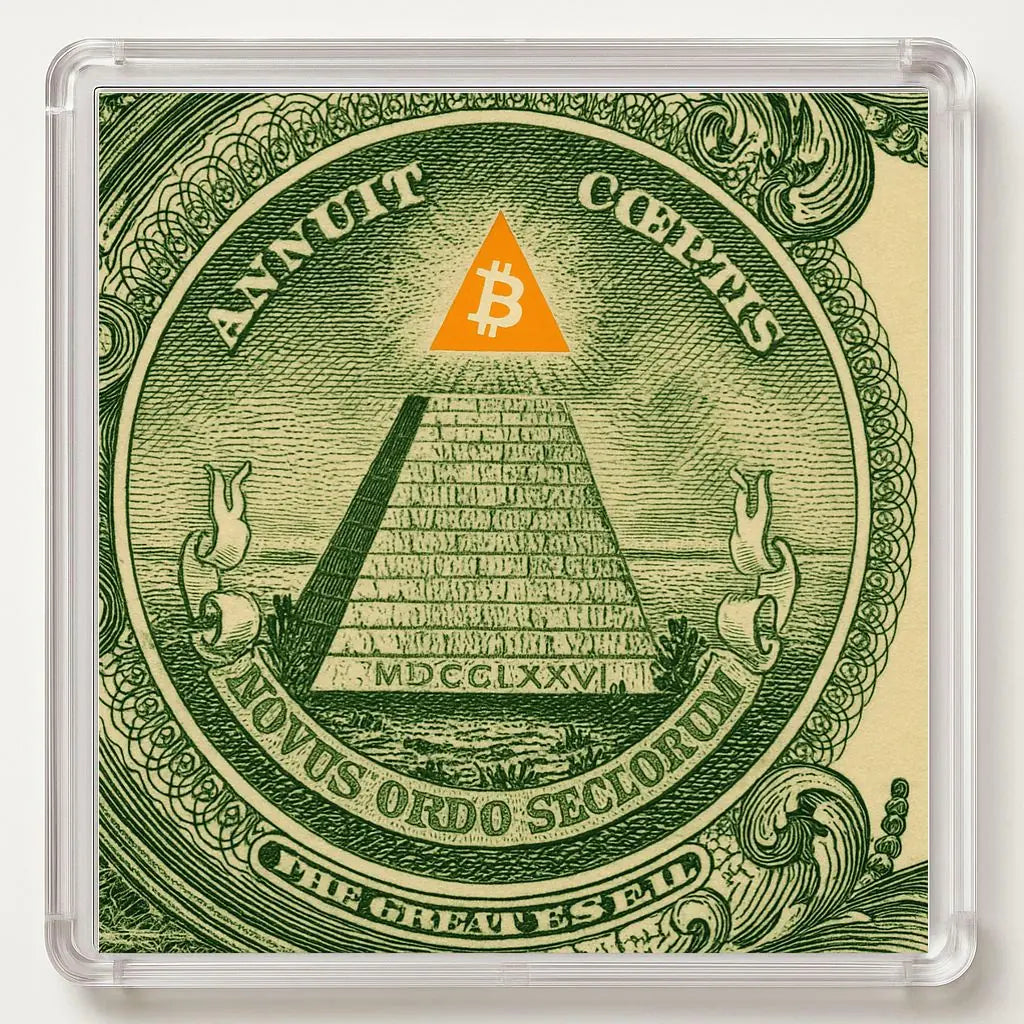
CYPHERPUNK SPIRIT
Share
WHAT REMAINS OF THE CYPHERPUNKS' SPIRIT IN TODAY'S BITCOIN?
Bitcoin was born from a dream of freedom. That of a small group of cypherpunks convinced that a digital currency without a central authority could free individuals from the clutches of a corrupt, opaque financial system controlled by a powerful few. Bitcoin was a cryptographic revolt: a code against coercion, a network resilient to censorship, a peaceful weapon to restore individual sovereignty.
Today, this utopia has taken a strange turn. While Bitcoin's genesis was rooted in the rejection of banks and the state, the very institutions it challenged are now flocking to it. BlackRock, the world's largest asset manager, is offering a Bitcoin ETF on the Nasdaq. Donald Trump, in his run for the White House, is promising a national Bitcoin reserve for the United States. Bitcoin is no longer just a symbol of resistance: it is becoming a geopolitical asset, a power stake, a tool in the hands of the giants it was meant to bring down.
THE RECOVERY OF A REVOLUTIONARY IDEA
Bitcoin ETFs are applauded by some in the community: they bring billions of dollars in liquidity and validate Bitcoin's place as "digital gold." But at what cost? These institutional financial products are regulated, monitored, and subject to the same rules as Wall Street. They are a departure from the original spirit, which advocated independence, self-custody, and resistance to confiscation.
Similarly, a state announcing its intention to establish a national Bitcoin reserve marks a symbolic victory for the protocol's recognition, but also distorts its original meaning. Bitcoin was an instrument for emancipation from states, not a tool for them to strengthen their power.
WHAT REMAINS OF THE CYPHERPUNK SPIRIT?
Fortunately, a die-hard fringe remains. Modern cypherpunks continue to code, deploy privacy solutions, promote self-custody, and the direct use of Bitcoin as a peer-to-peer payment method. Projects like Samourai Wallet, Wasabi, and the Lightning Network still champion the vision of Bitcoin as a free, anonymous, and surveillance-resistant currency.
But it would be naive to believe that Bitcoin isn't becoming institutionalized. Bitcoin's success naturally attracts capital, regulation, centralized exchanges, and even political ambitions. Satoshi Nakamoto undoubtedly anticipated this: Bitcoin's strength lies not in remaining pure, but in remaining decentralized and resilient despite attempts at recovery.
A NEW CHAPTER IN HISTORY
Bitcoin is no longer a toy for cypherpunk nerds; it's a global player. The challenge today is to preserve its essence: a network without a central authority, a protocol open to all, a currency that no one can censor or confiscate. The challenge is no longer just technical: it's cultural, educational, and political.
For if Bitcoin is co-opted, stripped of its libertarian substance, it could become just another financial product. But if its users continue to understand it, use it, and defend it as a tool for emancipation, then the cypherpunk spirit will survive, even in the heart of Wall Street.
👉 Also read:
